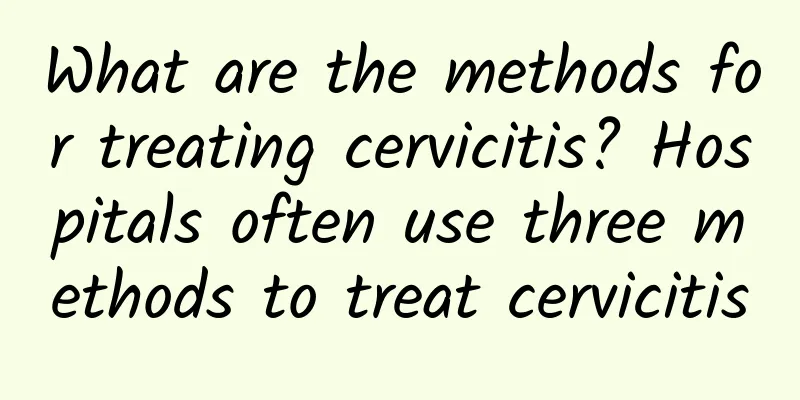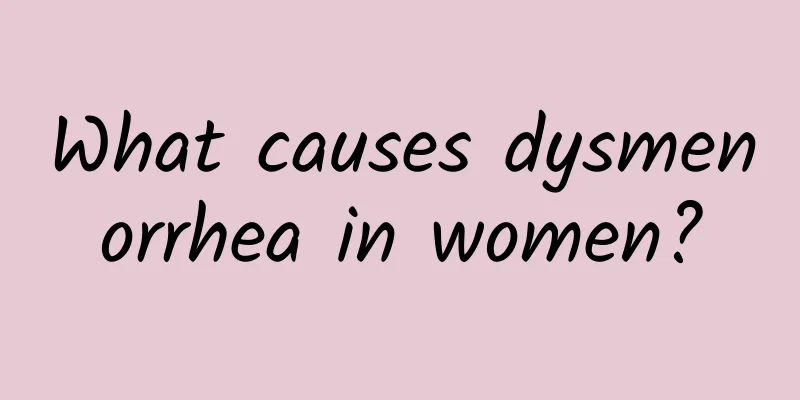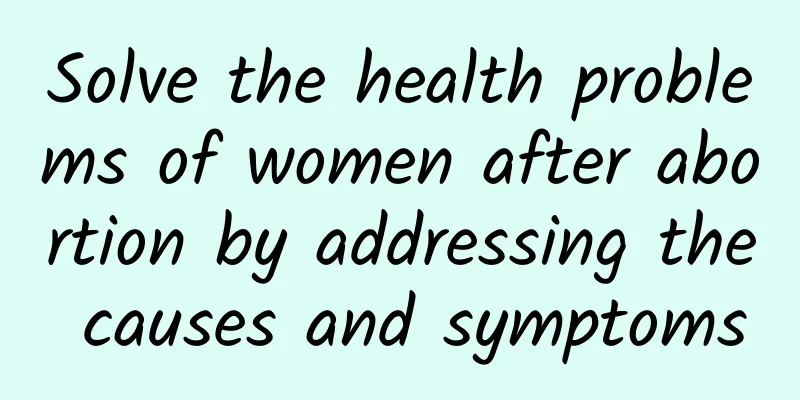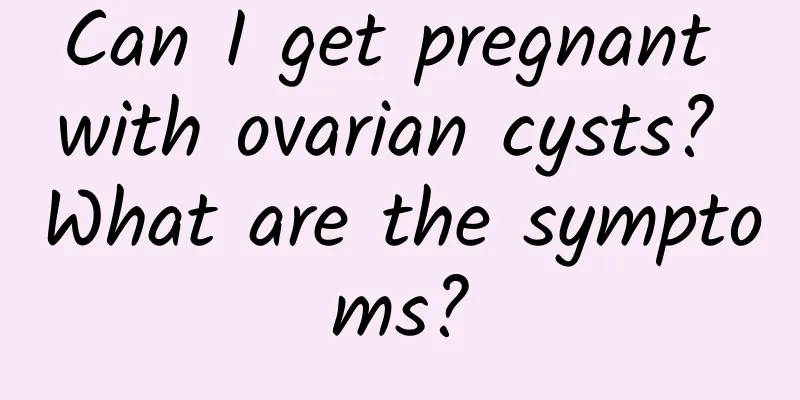The most obvious symptoms of intrauterine adhesions

|
Intrauterine adhesions do not have the most obvious symptoms. Intrauterine adhesions are a common gynecological disease that often occurs after endometrial damage. Its obvious symptoms include abnormal menstruation, abdominal pain, infertility, menstrual cycle disorders, and decreased menstrual flow. If the symptoms persist, it is recommended to seek medical attention in time and take targeted treatment measures under the guidance of a doctor. The details are as follows: 1. Abnormal menstruation: Intrauterine adhesions can cause menstrual abnormalities such as reduced menstrual volume, shortened menstrual periods, or even amenorrhea. When abnormal menstruation occurs, you should seek medical attention in a timely manner and undergo ultrasound examination or hysteroscopy to determine whether there is intrauterine adhesion. 2. Abdominal pain: Intrauterine adhesions may cause periodic abdominal pain, especially during menstruation. For patients with obvious abdominal pain, painkillers such as ibuprofen tablets can be used under the guidance of a doctor to relieve symptoms, and surgical treatment can be considered. 3. Infertility: Damage to the endometrium caused by intrauterine adhesions will affect the implantation of the fertilized egg, leading to infertility. Infertile patients should undergo a detailed reproductive examination to determine whether it is caused by intrauterine adhesions, and choose hysteroscopic surgery for treatment under the doctor's advice. 4. Menstrual cycle disorder: Intrauterine adhesions can also cause irregular menstrual cycles, which are manifested as prolonged or shortened menstruation. In the case of menstrual cycle disorder, patients are advised to undergo endocrine examinations and use hormone drugs to regulate the menstrual cycle under the guidance of a doctor. 5. Decreased menstrual volume: Some patients may only experience a significant decrease in menstrual volume, or even just a few drops of menstrual blood. Patients with such symptoms should undergo a hysteroscopy to determine the extent of adhesions and receive treatment according to the doctor's advice, such as laser separation or cryotherapy. In order to reduce the harm of intrauterine adhesions to the body, patients should seek medical treatment in time and undergo necessary examinations and treatment. Through reasonable medical means and lifestyle adjustments, symptoms can be effectively relieved and the quality of life can be improved. For patients with related symptoms, they should seek medical treatment in time and receive treatment and management according to the doctor's advice. |
>>: How long is the best time to rest after abortion?
Recommend
What should I do if I have uterine fibroids during pregnancy? Treatment of uterine fibroids during pregnancy
What should I do if I have uterine fibroids durin...
Will ectopic pregnancy cause fever? Generally, it will not exceed 38°C
Ectopic pregnancy refers to the fertilized egg be...
How many days do you need to take cephalosporin after a miscarriage? Generally about three days
The harm to women after miscarriage is very serio...
Can I drink milk when I have dysmenorrhea? It can relieve pain
When women have dysmenorrhea, they cannot bear th...
Six months after marriage, men are prone to obesity, women are prone to obesity
Marriage is the beginning of obesity, what to do?...
Why does breast pain occur before menstruation?
Breast pain is a very common phenomenon in women....
A brief analysis of common dietary taboos for acute cervicitis
When caring for patients with acute cervicitis, i...
Can patients with endometrial polyps prepare for pregnancy?
Can patients with endometrial polyps prepare for ...
Abnormalities of hyperplastic vulvar leukoplakia at different stages
The cause of vulvar leukoplakia is quite complica...
Adenomyosis surgery cost
Relatively speaking, laparoscopic surgery is slig...
Why does amniocentesis lead to miscarriage? There are 3 reasons
During pregnancy, we need to perform amniocentesi...
Green tea vs. coffee, which one is better for burning fat before exercise?
Burn that fat! In order to get rid of excess fat ...
What to do if you suddenly have breast pain on one side after menopause
What should I do if I suddenly experience breast ...
Surgical treatment of ovarian cysts
Surgical treatment of ovarian cysts: Ovarian cyst...
What color is menstruation during pregnancy? How to treat menstruation during pregnancy?
What color is menstrual period during pregnancy? ...









